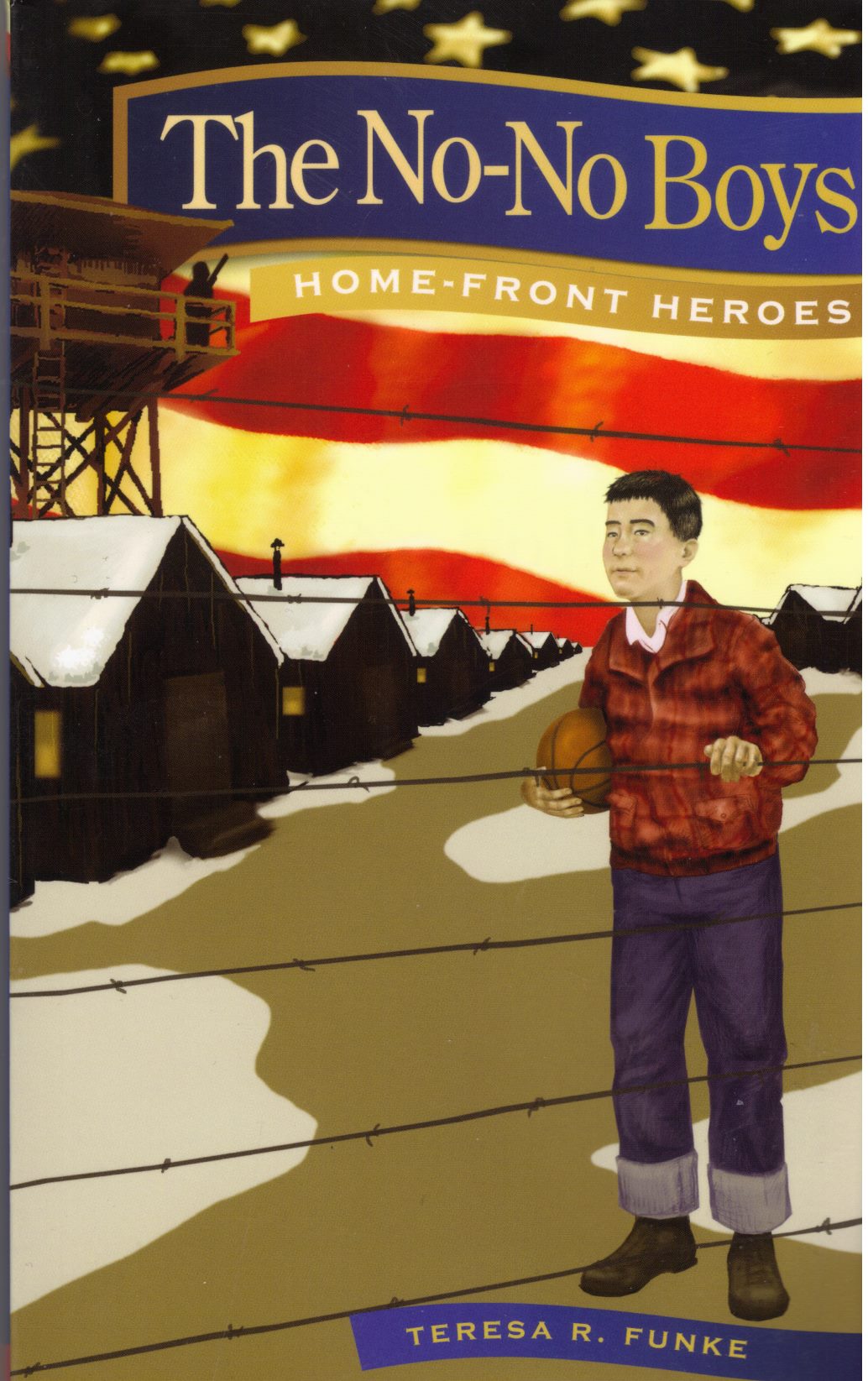

The No-No Boys

This is another book that deals an inside look at a family of interned Japanese Americans who are in Tule Lake. The story is told through the eyes of Tai who is 14 years old. He has a mother, father and a brother.
The story is based on the effects of the questionnaire they had to fill in about whether or not they would serve in the U.S. military and if they would renounce any loyalty to the Emperor of Japan. This caused problems for many of the people in the camps and we see it reflected in this story. Tai is too young to fill the questionnaire out. The mother and father answer yes to both questions while the brother, Ben, answers no to both.
Beth gets involved with a group of boys in the camp who are basically troublemakers. They answered no to both questions also, but it seems they are willing to use violence to try to punish those who answered otherwise and to punish anyone who seems to be overly cooperating with the camp administration.
The novel is based on real things including the following:
Difficulties for people in having to move.
The relatively bad conditions in the camp.
The breakdown of families.
The questionnaire problem.
The No-No movement.
A main point about why should the internees be willing to go into the U.S. military when they were round up illegally and forced to life behind barbed wire in sub-standard barracks with the U.S. military guarding them.
The use of violence against others in the camp.
The censoring of the camp newspaper.
After-war prejudice.
The difficulty of Japanese Americans getting jobs even after the war.
The book does a very good job of covering all these things from a personal viewpoint.
Main Index
Japan main page
Japanese-American Internment Camps index page
Japan and World War II index page
|